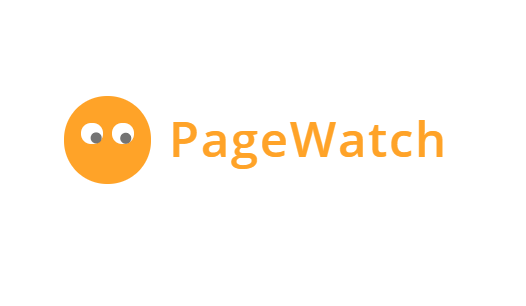Embarrassing errors on your website can wreck your reputation. A quick tool to help you check for these embarrassing mistakes can help you save time and effort. PageWatch is way to check for page responsiveness and other types of recurrent errors, and it also allows you to see how every page can be viewed on different devices. In conversation with Loftie Ellis, Founder of PageWatch, we learn more about this tool and its benefits.
What is the startup/product about? Give us a brief description of it.
PageWatch is a front-end monitoring solution for your website. We monitor your entire site for layout issues, spelling errors, performance related problems and other factors that could damage your brand.
PageWatch aims to give clear, actionable insights without requiring any manual setup (just enter your site url and go). We render every page in a real browser just like a user to make sure every page looks and performs as it should.
How many co-founders are there? Please introduce them and their backgrounds.
If there are multiple co-founders, please mention how did you meet one another


There is only one founder currently which is me. I was previously developer at SnapScan, a mobile payments company in South Africa that eventually got acquired by Standard Bank. I left SnapScan beginning of the year to build my own company.
How big is the entire team currently?
The entire team is currently just me.
How did you come up with the idea? What motivated you to do this?
I built PageWatch to help me when I noticed I go through the same tasks every time I make a big website update. It usually went like this:
- Open Chrome devtools, and I use the emulate tab to check my pages in various device sizes.
- Proofread a bunch of pages to look for spelling/visual issues, especially when talking about companies/brands that are not usually caught by spell check.
- Click around the site to make sure the links all work
- All while keeping an eye on the console for javascript errors, broken resources or slow loading pages.
PageWatch was started when I realized I could automate a big part of this.
What is your target market? Why do you think your product will appeal to?
I think I have basically two different target markets. One is SME’s that want to keep track of their websites and make sure if is free of any embarrassing errors. These users typically would want to regularly test their site (perhaps via CI) to make sure everything keeps working as expected.
The other target is web design agencies that want to test their sites before it is delivered to the client. They would typically want to test a site only once or twice, fix all the issues, and then move on to different projects.
What are the marketing plans apart from the product hunt/beta list launch? How are you planning to acquire new users?
My most successful channel has been cold emails to interesting companies I found online, mostly via HackerNews. I would run a free audit on some of these sites, and since basically every website has some issues that should be fixed, I immediately have some value that I can add in the email.
The other strategy that really helps with backlinks building free tools. We have a few available, but there is much more potential here.
Do you have a separate dedicated team to take care of marketing (digital marketing/traditional marketing)? Which digital platforms are you focusing more on?
We do not, up until last month all my energy was spent on the product, I am hoping to be able to dedicate much more time to marketing over the next few months.
What according to you is the biggest challenge that you faced? Is it product development or marketing or scaling or … ?
Marketing has been by far the hardest, but that is mostly because I am so much more comfortable building than promoting. Another surprising challenge was figuring out a good pricing structure. In the beginning I did not even have a subscription plan (I had a credit system where you pay once off per page), but all the feedback from clients indicated that is not what they expect.
Who are your competitors/alternatives? What sets you apart from them?
We have quite a few competitors that each overlap with our offering in a slightly different way. These range from SEO related tools such as SEMrush or deepcrawl, front-end monitoring solutions such as Assertable or Ghost Inspector, to site governance tools such as SiteImprove. (though they are much more enterprise focused).
PageWatch offers a few features that I have not seen anywhere else, such as automatic layout error detection.
A goal with PageWatch is to be useable with very little setup. We do deep processing on all the collected data to show you just the important issues, rather than showing you bunch of collected metrics and expecting the user to figure out how to make sense of it all.
With PageWatch you can just enter a url and in a few minutes we will have checked your entire site for spelling mistakes, mobile or tablet layout issues, dead links or javascript errors, with clear metrics (including full resolution screenshots) exactly where the problems occur.
What are the future plans with the product/startup? Any new features you are planning on?
Our biggest new development (and the most requested feature so far) is continuous integration support (e.g. with GitHub). You should be able to see exactly how every commit will impact your site and fix any errors before the site even goes live.
Know a great start-up story or want to share your own? Write to us at interact@insidermediacorp.com and we will get back to you. For more updates follow Venture Mirror on Facebook

